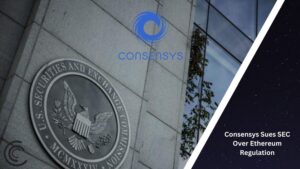Key takeaways:
- Financial services behemoth Fidelity requests permission to stake a portion of the Ether owned by its proposed spot Ether ETF to give investors extra money.
- Fidelity is one of eight fund issuers who have submitted an application for an Ether ETF; the SEC is now reviewing the applications.
Financial services behemoth Fidelity requests permission to stake a portion of the Ether owned by its proposed spot Ether Exchange Traded Fund (ETF) to give investors extra money.
If the ETF were authorized, Fidelity stated in a 19b-4 amendment submitted to the US Securities and Exchange Commission (SEC) on March 18 that the fund would use one or more reputable staking providers to stake an undisclosed portion of its assets. As stated in its modified application, Fidelity:
“The Sponsor may, from time to time, stake a portion of the Fund’s assets through one or more trusted staking providers, which may include an affiliate of the Sponsor (“Staking Providers”),”
Fidelity did not name a particular stake supplier. Today’s market has several ether staking providers, such as Lido DAO, RocketPool, and StakeWise.
Fidelity is one of eight fund issuers who have submitted an application for an Ether ETF; the SEC is now reviewing the applications.
Ark 21Shares also announced plans to stake some ETH from its new fund on February 8. A few days later, Franklin Templeton joined the spot Ether ETF race, likewise planning to stake some Ether in the ETF to generate extra revenue.
On November 18 of last year, it joined the competition, along with the biggest investment business in the world, BlackRock, ARK Invest, which Cathie Wood, and Grayscale, a cryptocurrency asset management firm own.
VanEck’s last deadline is May 23. If the SEC does not approve all eight ETFs by then, all potential issuers will need to reapply later.
According to Bloomberg ETF analyst Eric Balchunas, by Van Eck’s deadline in May, only 35% of spot Ether ETF approvals were expected.
Although the SEC’s radio silence to potential fund issuers and political backlash against Chair Gary Gensler were concerning signals for the licensing process, Blachunas estimated the approval prospects to be 70% in January.











